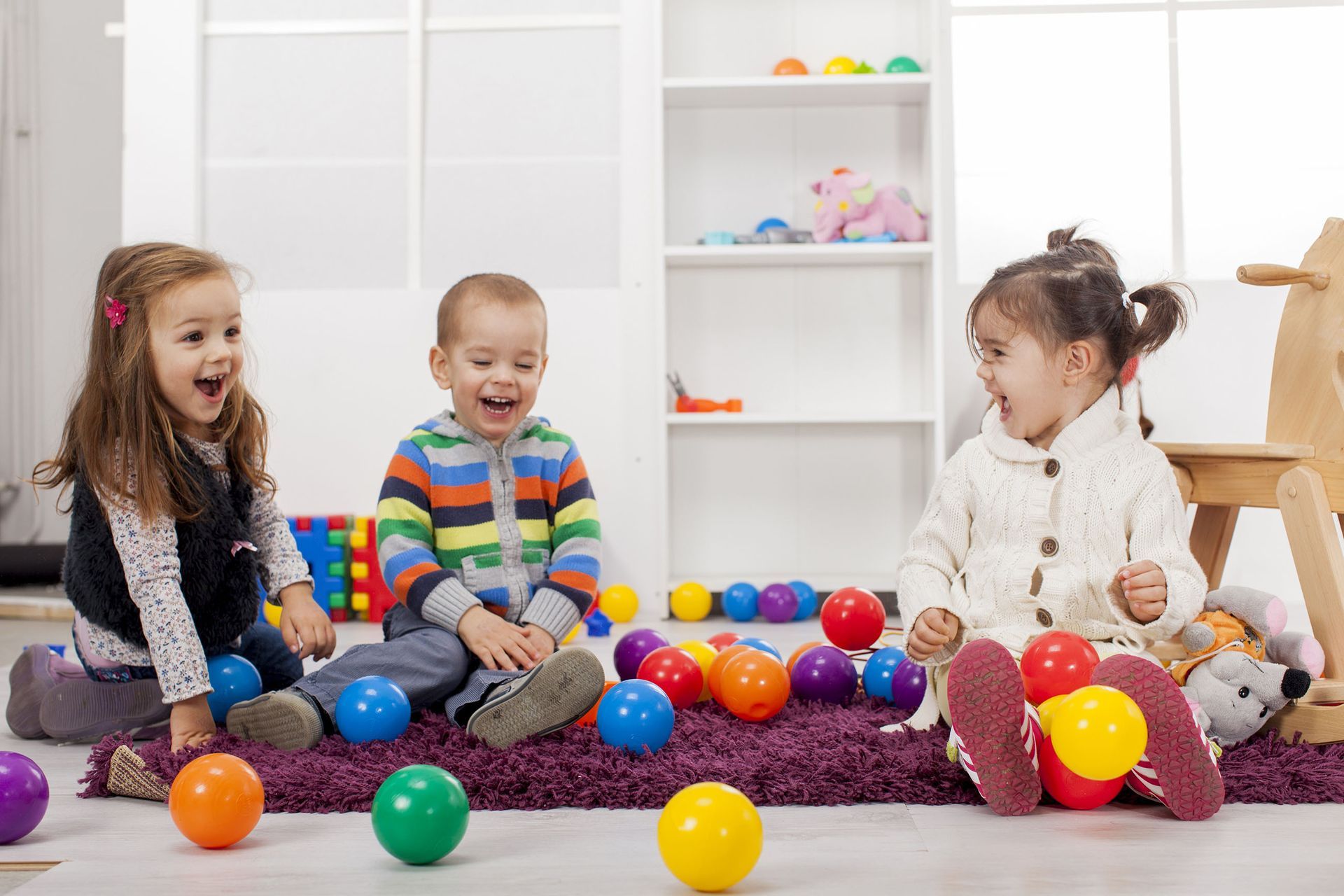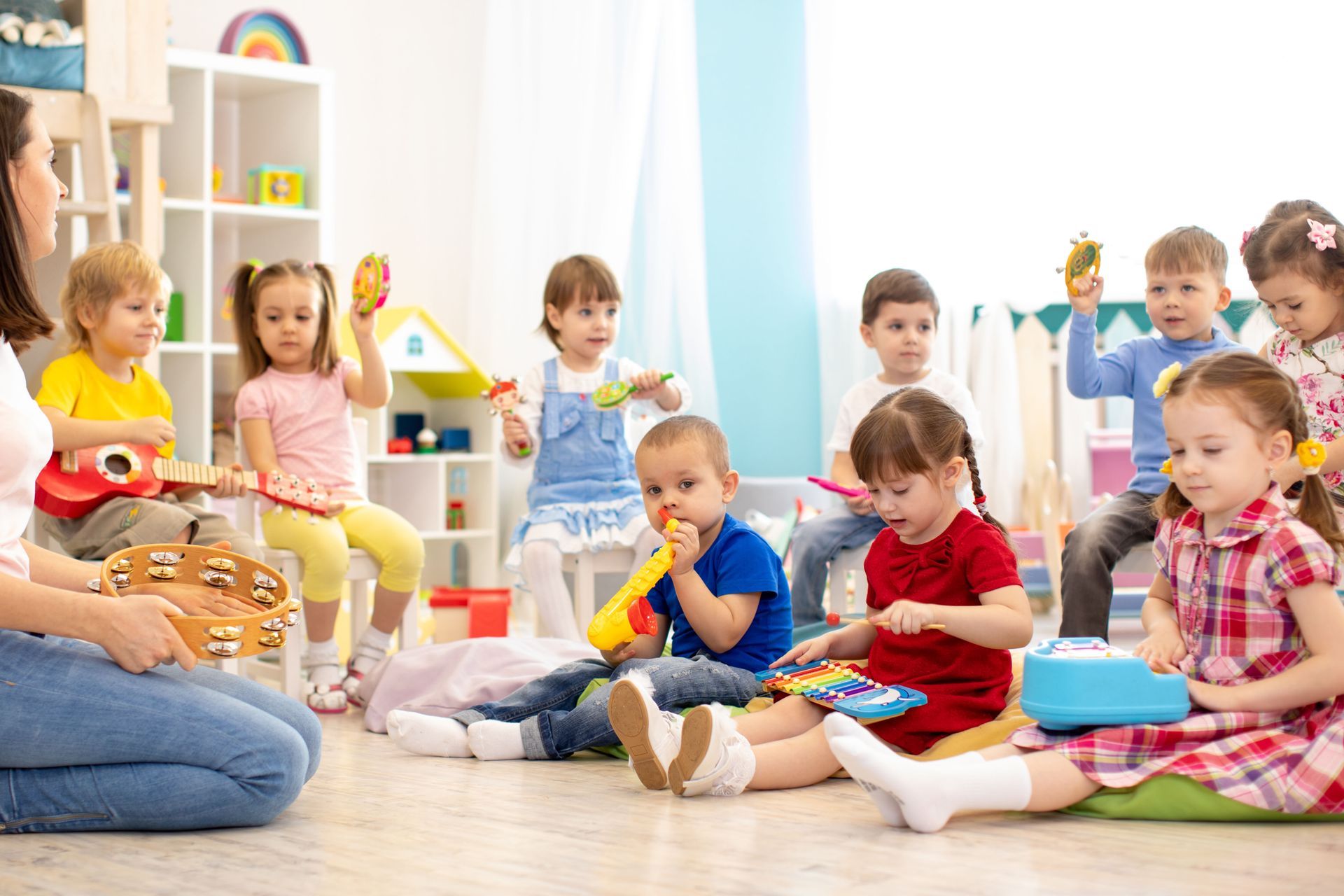Benefits of Sending Your Child to a Local Preschool
Choosing where your child begins their educational journey is one of the most important decisions you’ll make as a parent. Early childhood is a crucial time for emotional, social, and cognitive development.
Sending your child to a local preschool can provide a structured, nurturing environment that helps lay the foundation for future success. Rather than delaying education until kindergarten, families are increasingly recognizing the unique advantages a high-quality preschool can offer during the most formative years of a child’s life. If you're weighing your options, here are several compelling benefits of enrolling your child in a local preschool.
Supporting Critical Brain Development
Early childhood is a period of rapid and critical brain growth. According to the CDC, preschool-aged children experience immense brain development and achieve 90% of their adult brain volume by age six. These early years are when cognitive pathways are formed, and the brain is most adaptable to learning. A well-structured preschool environment engages children through age-appropriate activities that enhance language skills, motor coordination, problem-solving, and emotional regulation.
At a local preschool, children benefit from consistent exposure to guided learning experiences that stimulate various parts of the brain. Whether it’s identifying shapes, participating in imaginative play, or learning how to follow multi-step directions, these foundational activities help solidify essential cognitive patterns at just the right time in a child's development.
Encouraging Social and Emotional Growth
While academic skills are a major part of early education, emotional and social development are just as important. In a preschool setting, children learn how to interact with others, express emotions constructively, resolve conflicts, and develop empathy. These experiences help them become more confident and better prepared for group settings like elementary school classrooms.
Being surrounded by peers at a local preschool also gives children regular practice with communication and cooperation. Learning to share, wait their turn, and express feelings in a healthy way builds the foundation for lifelong interpersonal skills. Trained educators guide children through these early interactions, providing supportive instruction that helps shape balanced, well-adjusted individuals.
Establishing a Daily Routine
Young children thrive on structure and routine. A predictable daily schedule helps them feel safe and gives them a sense of control over their environment. Preschools offer consistent routines that introduce children to time management, task transitions, and self-regulation.
Morning greetings, snack time, group learning, play periods, and quiet time all become familiar components of a child’s day. These routines ease the transition into kindergarten and beyond, where children will be expected to follow more structured schedules. Attending a local preschool ensures that your child begins building these habits early, under the guidance of supportive professionals who understand developmental needs.
Fostering Independence and Confidence
As children grow, their desire for independence increases. Preschool offers a safe space for them to try new tasks, make choices, and navigate minor challenges on their own. Whether it's putting on a jacket, washing their hands, or deciding which activity to join, these moments of autonomy help children develop a sense of capability and confidence.
At a local preschool, teachers provide just the right level of assistance while encouraging children to think and act independently. As they learn to take responsibility for their actions and belongings, children begin to develop self-esteem and a belief in their own abilities—skills that will serve them well in school and life.
Introducing Early Academic Concepts
High-quality preschool programs introduce basic academic concepts through play and exploration. Children begin to recognize letters, count objects, explore nature, and understand patterns. These early exposures are critical in preparing them for more advanced learning in kindergarten and elementary school.
Preschool teachers use hands-on methods and interactive materials to keep young learners engaged and curious. Activities are designed to stimulate cognitive growth while respecting each child’s developmental pace. Enrolling your child in a local preschool ensures they are introduced to academic content in a way that feels natural and enjoyable, sparking a lifelong love of learning.
Providing Safe and Supervised Play
Play is more than just fun—it’s a vital aspect of childhood development. Through play, children learn how to interact socially, experiment with ideas, and test physical capabilities. At a local preschool, children have access to safe play environments where they can run, climb, build, and explore under the watchful eye of trained professionals.
Supervised playtime helps children learn risk management, practice teamwork, and develop physical coordination. Indoor and outdoor play areas are often equipped with age-appropriate materials that promote imaginative and active play. This balance between freedom and supervision helps children learn boundaries while still enjoying the joys of childhood.
Building Language and Communication Skills
Early immersion in a language-rich environment is essential for building strong communication skills. Preschool classrooms are full of songs, stories, discussions, and interactive activities that expand vocabulary and enhance listening abilities. Children practice expressing their ideas, asking questions, and following instructions, which helps develop both expressive and receptive language skills.
Attending a local preschool also introduces children to various modes of communication beyond spoken words, including gestures, visual aids, and group participation. These experiences lay the groundwork for effective communication in more complex academic and social environments.
Creating a Sense of Community
One of the unique benefits of a local preschool is the strong sense of community it fosters. Children interact not only with their peers but also with teachers, staff, and other families from their neighborhood. This early exposure to community values, cooperation, and mutual respect nurtures a sense of belonging and shared responsibility.
Parents also benefit from the community aspect of local preschools, gaining opportunities to connect with others, share resources, and collaborate on their children’s educational journey. These relationships strengthen support networks and make the early years of parenting more collaborative and rewarding.
Easing the Transition to Kindergarten
Children who attend preschool often transition to kindergarten more smoothly than those who do not. They are already familiar with classroom dynamics, teacher interactions, peer relationships, and academic expectations. As a result, they enter kindergarten with greater confidence and readiness to learn.
Local preschool programs are typically designed to align with the educational standards of nearby elementary schools, ensuring that children are well-prepared for the next step. This continuity supports a seamless academic progression and a more positive experience for both children and parents.
Encouraging a Lifelong Love of Learning
Perhaps one of the most valuable benefits of early education is the cultivation of a genuine love for learning. When children are given the tools to explore, question, and create in a nurturing environment, they associate learning with joy and curiosity. This mindset can influence their attitudes toward education for years to come.
At a local preschool, children are encouraged to follow their interests, express creativity, and engage in discovery. The freedom to learn through play and interaction instills enthusiasm that extends beyond academics and into every area of life.
Early childhood is a powerful window of opportunity for growth and development. With 90% of adult brain volume established by age six, the experiences children have during these years are incredibly impactful. Sending your child to a local preschool provides the structure, stimulation, and support they need to thrive—academically, emotionally, and socially.
For families in search of a nurturing and enriching environment, Joyland Preschool/Childcare offers a trusted option grounded in educational excellence. By choosing a local preschool that values development, community, and individualized attention, you're giving your child the best possible start on their lifelong learning journey. Call today to learn more!




Share On: